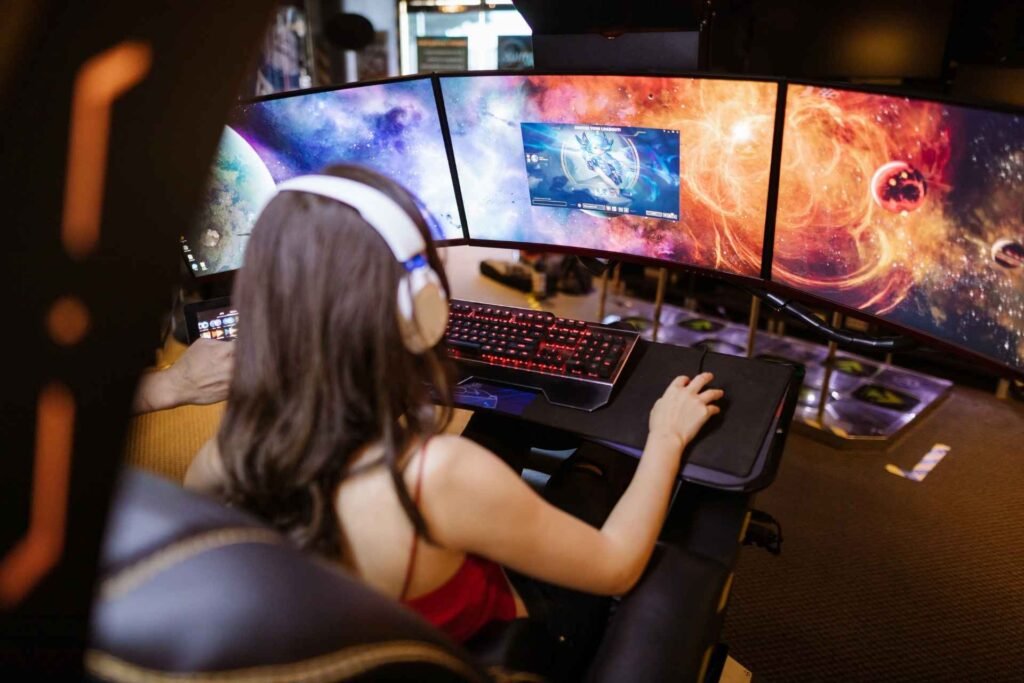
How You Can Build a Career in Game Design
The game industry is seeing unprecedented expansion, providing numerous career prospects for those who aspire to become game designers. As technology advances and there is a greater need for interactive entertainment, there is no better time to break into this vibrant industry.
- The international game market will hit $271 billion by 2025 due to the spread of mobile gaming and new technologies such as virtual reality.
- India’s gaming market is growing at a very fast pace and is anticipated to touch $9.2 billion by FY29 with a 20% compound annual growth rate (CAGR). The size of the gamer base in India is anticipated to increase from 455 million in 2023 to 491 million by 2024
Career Paths in Game Design
Core Roles
- Game Designer: Develops game concepts, mechanics, and rules.
- Level Designer: Creates engaging game environments and challenges.
- UI/UX Designer: Focuses on user interface and experience to ensure intuitive gameplay.
Specialized Roles
- Narrative Designer: Crafts compelling storylines and dialogues.
- Technical Artist: Bridges the gap between art and programming.
- Sound Designer: Develops immersive audio experiences.
Educational Pathways
Academic Programs : Various institutions offer specialized programs in game design, including bachelor’s degrees in Computer Science with a focus on Game Development and diplomas in Animation and Game Design.
Skill Development: Proficiency in game engines like Unity and Unreal Engine, along with knowledge of programming languages such as C++ and Python, is essential. Soft skills like creativity, problem-solving, and teamwork are equally important.
Building a Portfolio: A strong portfolio showcasing diverse projects, including indie games and mods, is crucial. Participating in game jams and contributing to open-source projects can enhance visibility and experience.
Key Roles in Game Design
The gaming industry offers diverse career paths beyond just programming. Here are some prominent roles:
- Game Designer: Develops game concepts, mechanics, and rules.
- Level Designer: Creates engaging game environments and challenges.
- UI/UX Designer: Focuses on user interface and experience to ensure intuitive gameplay.
- Game Artist: Designs characters, environments, and visual effects.
- Game Writer: Crafts compelling storylines and dialogues.
- Game Tester: Identifies bugs and ensures game quality.
- Game Marketer: Promotes games to reach the target audience .
Skill Development
To excel in game design, one should focus on:
- Technical Skills: Proficiency in software like Unity, Unreal Engine, Blender, and Adobe Creative Suite.
- Programming Languages: Knowledge of C++, C#, and Python.
- Artistic Skills: Understanding of color theory, anatomy, and 3D modeling.
- Soft Skills: Creativity, problem-solving, teamwork, and communication.
Salary Expectations Game Design
Salaries in game design vary based on experience, location, and specialization.
| Experience Level | Average Annual Salary (INR) |
| Entry-Level | ₹4.2 – ₹6.0 Lakhs |
| Mid-Level | ₹8.0 – ₹12.0 Lakhs |
| Senior-Level | ₹15.0 – ₹26.0 Lakhs |
Job Market Insights
The Indian gaming industry is expected to add 100,000 new jobs by 2025, spanning roles in programming, design, testing, and animation.
- Salary Expectations: Entry-level game designers in India can expect to earn between ₹3-6 lakhs per annum, with potential for growth based on experience and specialization.
- Future Outlook: With the integration of AI and immersive technologies, the gaming industry is poised for further expansion. Continuous learning and adaptability will be key to sustaining a successful career in game design.
The gaming industry’s boom presents a wealth of opportunities for creative and tech-savvy individuals. By acquiring the necessary skills and staying abreast of industry trends, aspiring game designers can carve out rewarding careers in this exciting field.

